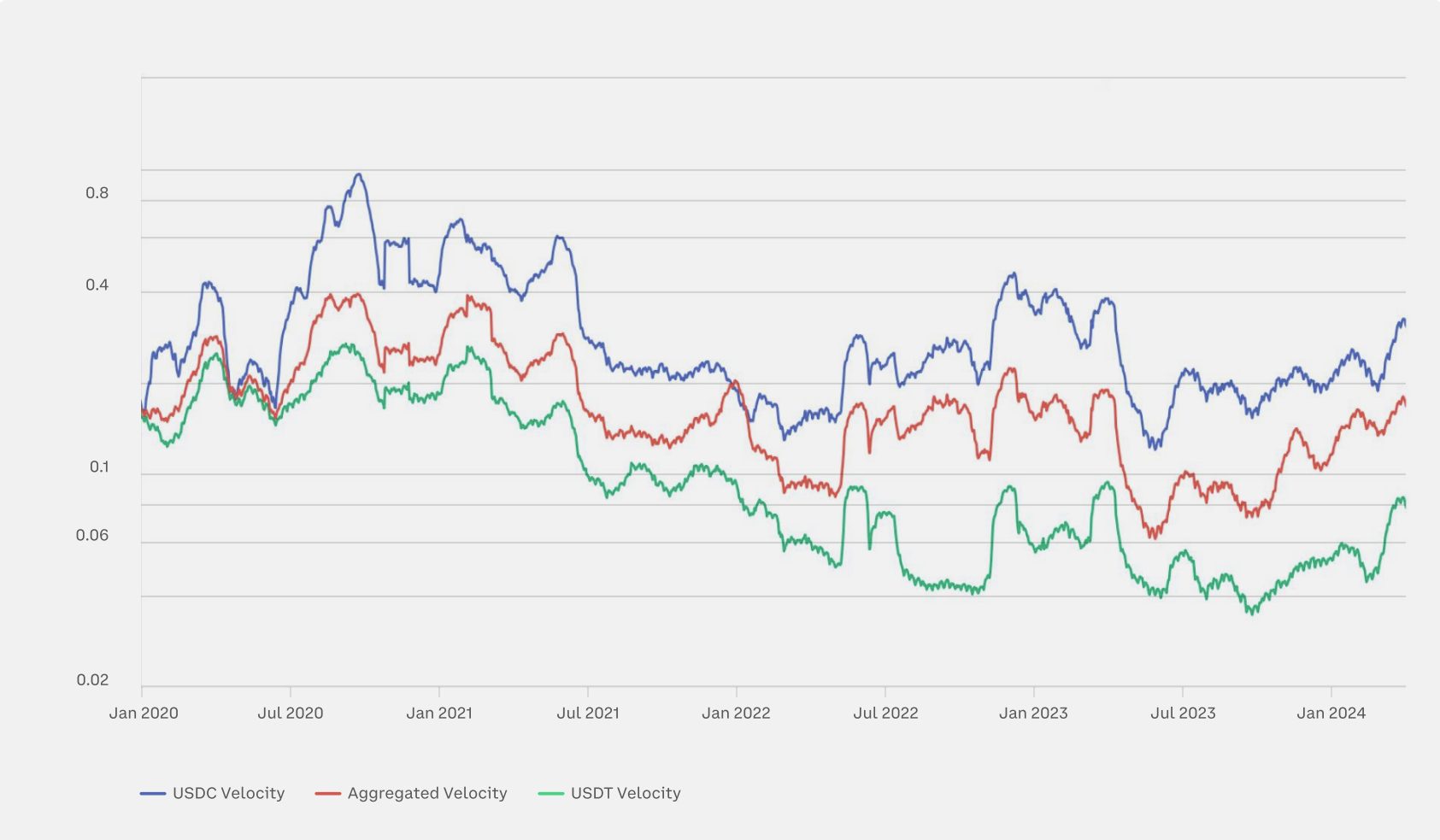
Share this article
A recent study conducted by Visa and Allium Labs suggests that the vast majority of stablecoin transactions are initiated by bots and large-scale traders, not genuine users.
The dashboard, designed to isolate transactions made by real people, found that out of approximately $2.2 trillion in total stablecoin transactions in April, only $149 billion originated from “organic payments activity.”
The same study said that USDC, the stablecoin issued by Circle, has outpaced Tether’s USDT stablecoin in volume. Notably, on-chain analysis from Nansen revealed that the overall volume for stablecoins have surpassed Visa’s 2023 monthly average.
Visa’s study directly challenges the arguments of stablecoin proponents, who claim that these tokens are revolutionizing the payments industry, which is currently valued at $150 trillion.
Despite support and optimism from financial technology firms such as PayPal and Stripe, the data suggests that the adoption of these tokens as a genuine payment instrument is still in its early stages.
“[…] stablecoins are still in a very nascent moment in their evolution as a payment instrument,” says Pranav Sood, executive general manager for EMEA at payments platform Airwallex.
Sood opines that it is possible for stablecoins to have “long-term potential” but its short-term and mid-term focus “needs to be on making sure that existing rails work much better.”
Data from Glassnode indicates that the record $3 trillion of total market circulation assigned to digital tokens at the peak of the 2021 bull market was closer to $875 billion in reality, pointing to a gap between nominal and “real” value between digital assets.
Glassnode also published a Q2 report in which it claimed that stablecoin network velocity, a measure of how quickly value moves around its network, is nearing 0.2 on an aggregated scale. This means that 20% of the total stablecoin supply is processed in transactions daily.

The issue of double-counting stablecoin transactions is also a concern. Cuy Sheffield, Visa’s head of crypto, explained that converting $100 of Circle USDC to PayPal’s PYUSD on the decentralized exchange Uniswap would result in $200 of total stablecoin volume being recorded on-chain.
Visa, which handled more than $12 trillion worth of transactions last year, is among the companies that could potentially lose out should stablecoins become a widely accepted means of payment. Analysts at Bernstein predicted that the total value of all stablecoins in circulation could reach $2.8 trillion by 2028, an almost 18-fold increase from their current combined circulation.
Share this article
The information on or accessed through this website is obtained from independent sources we believe to be accurate and reliable, but Decentral Media, Inc. makes no representation or warranty as to the timeliness, completeness, or accuracy of any information on or accessed through this website. Decentral Media, Inc. is not an investment advisor. We do not give personalized investment advice or other financial advice. The information on this website is subject to change without notice. Some or all of the information on this website may become outdated, or it may be or become incomplete or inaccurate. We may, but are not obligated to, update any outdated, incomplete, or inaccurate information.
Crypto Briefing may augment articles with AI-generated content created by Crypto Briefing’s own proprietary AI platform. We use AI as a tool to deliver fast, valuable and actionable information without losing the insight – and oversight – of experienced crypto natives. All AI augmented content is carefully reviewed, including for factural accuracy, by our editors and writers, and always draws from multiple primary and secondary sources when available to create our stories and articles.
You should never make an investment decision on an ICO, IEO, or other investment based on the information on this website, and you should never interpret or otherwise rely on any of the information on this website as investment advice. We strongly recommend that you consult a licensed investment advisor or other qualified financial professional if you are seeking investment advice on an ICO, IEO, or other investment. We do not accept compensation in any form for analyzing or reporting on any ICO, IEO, cryptocurrency, currency, tokenized sales, securities, or commodities.
See full terms and conditions.





Be the first to comment